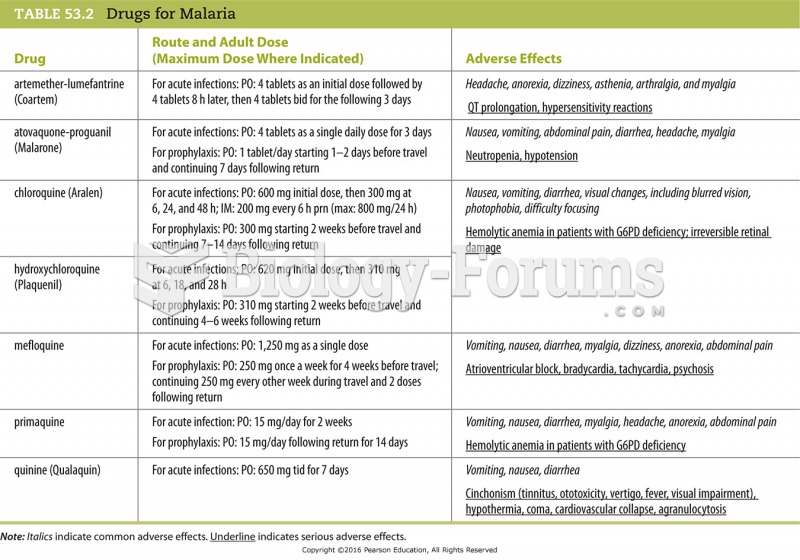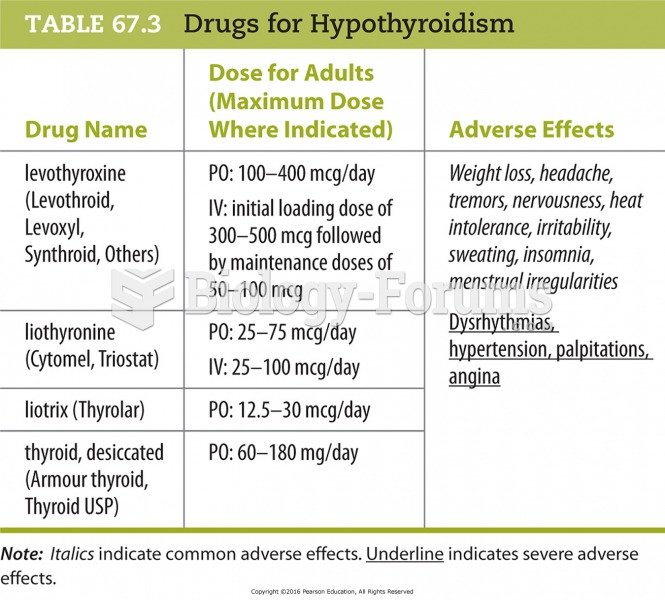Answer to Question 1
Correct Answer: 1
Rationale 1: Addiction refers to the overwhelming feeling that drives someone to use a drug repeatedly.
Rationale 2: Psychological dependence is incorrect because there are few signs of physical discomfort when the drug is withdrawn; however, the individual feels an intense compelling desire to continue drug use.
Rationale 3: Physical dependence refers to an altered physical condition caused by the nervous system adapting to repeated drug use. In this case, when the drug is no longer available, the individual experiences physical signs of discomfort known as withdrawal.
Rationale 4: Dependence is often defined as a physiologic or psychological need for a substance.
Global Rationale: Addiction refers to the overwhelming feeling that drives someone to use a drug repeatedly. Psychological dependence is incorrect because there are few signs of physical discomfort when the drug is withdrawn; however, the individual feels an intense compelling desire to continue drug use. Physical dependence refers to an altered physical condition caused by the nervous system adapting to repeated drug use. In this case, when the drug is no longer available, the individual experiences physical signs of discomfort known as withdrawal. Dependence is often defined as a physiologic or psychological need for a substance.
Answer to Question 2
Correct Answer: 2
Rationale 1: Efficacy is incorrect because efficacy is the ability of a drug to produce an effect.
Rationale 2: Bioavailability is the physiologic ability of the drug to reach its target cells and produce its effect.
Rationale 3: Therapeutic effect is incorrect because therapeutic effect is the anticipated, hoped-for effect of the drug.
Rationale 4: Adverse effect is incorrect because an adverse effect is an undesirable response of the drug (e.g., vomiting).
Global Rationale: Bioavailability is the physiologic ability of the drug to reach its target cells and produce its effect. Efficacy is incorrect because efficacy is the ability of a drug to produce an effect. Therapeutic effect is incorrect because therapeutic effect is the anticipated, hoped-for effect of the drug. Adverse effect is incorrect because an adverse effect is an undesirable response of the drug (e.g., vomiting).







